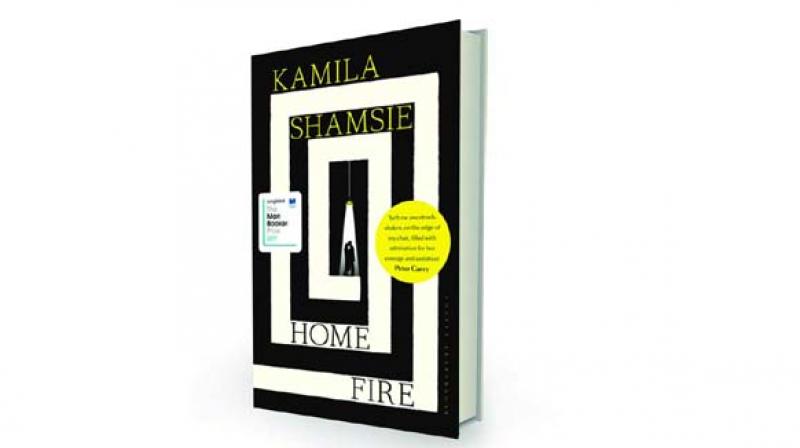Isis meets Antigone: Modern terrorism and ancient Greek tragedy
Creon responds by burying Antigone alive, which sets off a chain of events that sees everyone he loves die.

If someone was to lob the name Antigone about, many of us would smile and nod while trying to remember if this is the one about the guy who shagged his mum or the parent who offed their kids (bit of both). For those whose Sophocles is hazy, let me summarise. After a civil war in Thebes that sees two brothers, Eteocles and Polyneices, dead, the new king Creon rules that Eteocles is to be buried with honour, while Polyneices will be left outside the city gates to rot. Their sisters, Ismene and Antigone, have different views. Ismene concerned that their social position is a bit shaky, given a family history of incest and rebellion obeys Creon. Antigone, who thinks Creon’s decree offends natural and divine law, says whatever the Ancient Greek is for “sod that”, then buries her brother. Creon responds by burying Antigone alive, which sets off a chain of events that sees everyone he loves die.
I remind you of this because it’s relevant to one of the best novels of the year. Kamila Shamsie’s magnificent Home Fire retells Antigone as the story of two British-Pakistani families, divided over a rebel brother’s fate. Drawing on the play’s messy moral conflicts between family and country, love and duty, divine justice and man-made law Shamsie crafts a multifaceted tragedy about cultural tensions and radicalisation in modern London. Isma (Ismene) and Aneeka (Antigone) are Wembley sisters living with the fear and stain of their father’s jihadi past, something rekindled when their brother, Parvaiz (Polyneices), joins Isis in Syria.
Meanwhile, Karamat (Creon) is the first British-Pakistani to become home secretary. Via Karamat’s charming, loafer son Eamonn (Haemon) who befriends Isma, then falls for Aneeka the families are drawn together as Aneeka seeks relentlessly to bring her brother home, to help him “shake free of the demons he had attached to his own heels”. Isma opposes her “We’re in no position to let the state question our loyalties” and Karamat forbids Parvaiz’s return by stripping him of his British citizenship, metaphorically leaving him outside the gates to rot. As the home secretary’s own son becomes entangled in Aneeka’s illegal quest, Parvaiz’s repatriation forms the novel’s potent central question.
Shamsie’s great achievement is to humanise a political story, seeking empathy for every side of the argument surrounding Parvaiz’s return without ever showing sympathy for the evil of jihad. She does this by deftly embodying various points of view about Parvaiz (and Britain) in her lead characters, and challenging them via conflicts with their dearest loves.
By structuring the narrative in segments that follow the main characters’ subjectivities, Shamsie prompts the reader to see through each character’s eyes, presenting all the flawed and different ways that love and national loyalty can blur. In this way, Home Fire is insistently intelligent without becoming didactic a novel that poses weighty questions about British politics and society through their impact on the most elemental levels of the state: the family and the human heart.
With a story architecture as tight as any HBO drama, conveyed in prose of stunning suppleness and economy, Home Fire not only discourses with Sophocles’ work on a moral and structural level, but with modern translations of Antigone by Anne Carson and Seamus Heaney. Through wisps of shared phrasing, Shamsie stitches this contemporary story back into its Greek precedent, reinforcing, at every level of her text, that great human concerns justice, family, country, love are shared across cultures and millennia. Home Fire is everything literary fiction should be an exciting, beautiful, profound novel of lasting value that deserves laurels. I hope the Booker judges will agree.
By arrangement with the Spectator

